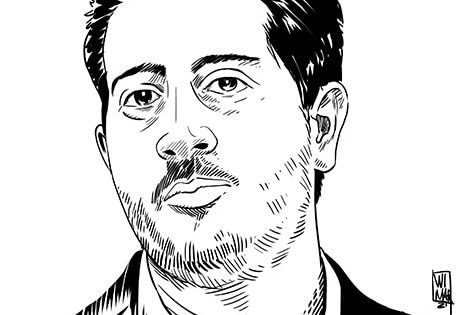Journalist Carlos Serpa Maceira reported that he was physically attacked while covering a demonstration.
(IAPA/IFEX) – Miami, December 16, 2009 – The Inter American Press Association (IAPA) today expressed concern and alarm at the increased violence and repression against Cuba’s independent journalists, bloggers, human rights activists and family members of prisoners. At the same time the organization repeated its call for the release of 27 journalists serving prison terms ranging from one to 28 years.
Journalist Carlos Serpa Maceira reported, in a telephone call to the IAPA from Cuba yesterday, that he was physically attacked while covering a demonstration in Havana by the Damas de Blanco (Women in White), an organization of relatives of political prisoners. Approximately 30 members of the group were attacked, including Laura Pollán, wife of Héctor Maseda Gutiérrez, a journalist sentenced in 2003 to 20 years’ imprisonment.
Serpa, from the news agency Agencia de Prensa Sindical Press and correspondent for the magazine Misceláneas de Cuba, was warned by the political police that if he continued reporting he would be sent to Juventud Island where his official residency is registered. His mobile phone was seized and he was accused in a state television newscast of being a “mercenary journalist.”
As a result of Cuba’s commemoration of World Human Rights Day on December 10, the Cuban Human Rights and National Reconciliation Commission drew up a partial list of 83 persons arrested or being held by the political police in various cities on the island in what has been seen as one of the fiercest political onslaughts in a decade. The detainees were later released.
IAPA President Alejandro Aguirre extolled the organization’s commitment to Cubans who, despite the official crackdown, continue demanding freedom of expression, adding, “Far from witnessing any progress and tolerance on the part of the government, what we see is an increase in repression for even the slightest criticism of the powers that be.”
A report on Cuba, presented during the IAPA annual General Assembly in Buenos Aires, Argentina, last month, highlighted the increase in repressive acts and physical violence towards independent journalists and their family members, as well as towards bloggers who are restricted to their hometowns, denied access to the Internet and whose computers are jammed as part of other measures in response to “the political immobility and economic and financial crisis.”
Aguirre, managing editor of the Miami, Florida, Spanish-language newspaper Diario Las Américas, declared that there has been no progress in circulation of information or freedom of opinion; “on the contrary,” he said, “we see a devastating panorama for the press and freedom of expression.”
The chairman of IAPA’s Committee on Freedom of the Press and Information, Robert Rivard, referred to the cases of 27 convicted journalists, some of whom, as in the case of Ricardo González Alfonso, are in extremely poor health and are not receiving due medical care.
González Alfonso recently went on a hunger strike to call international attention to what he terms the “privation of freedom to peacefully exercise what is enshrined in the Universal Declaration of Human Rights.”
Rivard, editor of the San Antonio Express-News, Texas, reiterated the IAPA demand for “the urgent release from prison of all independent journalists, especially and for humanitarian reasons, those who are seriously ill.”


